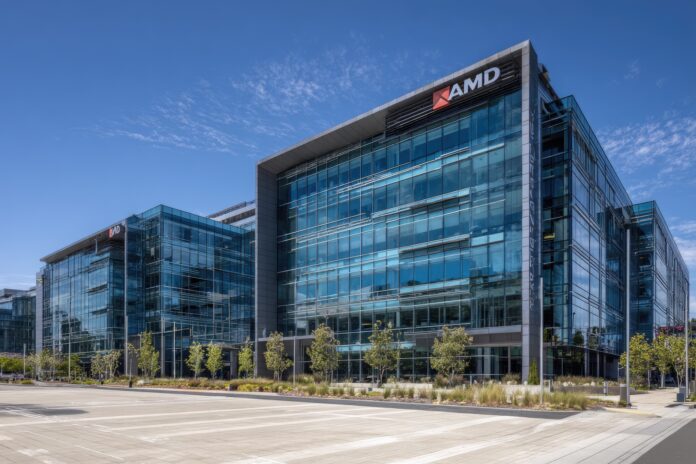Startups Weekly: AMD Acquisition and Other Moves to Scale AI Startups
In the fast-evolving technology landscape, AMD acquisition stories are reframing the way AI startups scale, innovate, and compete on the world stage. As AI applications proliferate across industries—from healthcare to fintech and beyond—the strategies shaping these young companies’ paths to rapid growth are more important than ever. This week, we examine the implications of AMD’s most recent AI-focused acquisition, explore how other large players and fresh capital injections are supporting next-generation startups, and identify practical steps for AI founders looking to scale with confidence.
The Strategic Impact of the Latest AMD Acquisition
Most importantly, AMD’s acquisition of Nod.ai highlights a deliberate move to strengthen its AI and machine learning software stack (Source: AMD Official Press Release). Nod.ai specializes in optimizing AI model deployment—a mission-critical function for startups aiming to bring powerful models from test environments into production. By integrating Nod.ai’s solutions, AMD gives startups better access to optimized software tools that tightly integrate with advanced hardware. In turn, this slashes the time needed for deploying AI-powered features and serves to bridge the gap between raw silicon performance and practical, real-world deployments. For any founder whose focus is on reliability and speed in model training and inference, this acquisition is a game-changer.
Why Hardware Partnerships Matter in Scaling AI Startups
Because venture-backed AI startups must operate with agility, access to leading hardware becomes non-negotiable. Partnerships with giants like AMD, NVIDIA, and even emerging players from Asia help ease bottlenecks in computation, networking, and storage. Early-stage companies—like Mistral AI and Runway—are securing long-term hardware supply agreements, enabling rapid product iteration without costly delays. Therefore, these alliances are more than procurement deals; they’re gateways to strategic guidance, technical support, and global market access, positioning startups for sustainable growth despite fierce competition.
Other Recent Moves: Investments, Partnerships, and Ecosystem Growth
AI’s explosive growth means investors and corporate partners are racing to spot the next breakout company. In 2024 alone, venture capital funding for AI startups surged to new highs, with global investment exceeding $50 billion. Most investors now prioritize companies with clear pathways to scale. This includes a robust infrastructure plan—often made possible through strategic supplier agreements—and a leadership team experienced in managing the complexities of machine learning operations.
Besides that, startup ecosystems are rapidly evolving. Accelerator programs such as Y Combinator, Techstars AI, and the Nvidia Inception Program are nurturing young companies with intensive mentorship, cloud credits, and direct introductions to enterprise clients. These programs help founders sidestep common pitfalls, particularly those related to engineering for scalability and compliance.
Lessons Learned from the AMD Playbook
Examining the AMD acquisition strategy uncovers some valuable lessons. Executing a timely acquisition of a nimble, technically gifted company like Nod.ai signals AMD’s focus on long-term innovation. For startups, it demonstrates the importance of building flexible, hardware-agnostic solutions and investing early in cross-platform compatibility. By doing so, startups can position themselves as must-have partners—or even potential acquisition targets—for the next wave of tech consolidation.
Challenges and Practical Strategies for Scaling AI Startups
Scaling an AI startup remains challenging. Teams must address model reliability, data security, compliance, and cost management. The AMD acquisition story reminds founders to approach these with a comprehensive strategy:
- Optimize from Day One: Early investments in deployment and model optimization pay dividends as usage scales. Solutions like those offered by Nod.ai can unlock performance previously reserved for much larger companies.
- Build Strategic Hardware Relationships: Secure hardware supply and technical support partnerships with major players early. It reduces the risk of delays and empowers faster iteration cycles.
- Pursue Ecosystem Support: Join leading accelerator programs and AI alliances. These bring mentorship resources and business connections that founders can’t afford to ignore.
The Road Ahead: What to Watch in AI Startup Scale-Ups
Looking ahead, the landscape will likely continue to consolidate due to the high costs and technical demands of cutting-edge AI. However, the AMD acquisition proves there’s room—indeed, a hunger—for deep technical expertise and domain-specific tools in AI infrastructure. Most successful startups will blend technical innovation with strategic partnerships and global vision.
For founders, the challenge is to move quickly without sacrificing quality. As industry leaders like AMD double down on AI investments, doors are opening for startups that prioritize robust, scalable solutions. Whether through acquisitions, strategic agreements, or entry into global accelerator networks, startups must stay nimble, informed, and connected to thrive in this golden era of artificial intelligence.
Final Thoughts
To sum up, the latest AMD acquisition and allied scale-up moves illuminate the major engines driving AI innovation. For the ecosystem, it signals an exciting chapter where collaboration, investment, and technical excellence converge for unprecedented growth. Besides that, it sets a precedent for future deals and partnerships poised to shape the next decade in AI. Don’t miss our next Startups Weekly, where we’ll break down more pivotal moments and opportunities in the AI and tech startup landscape.



